One Hour One Life gives you 60 minutes to advance civilization and raise children
A multiplayer social experiment about life and death.
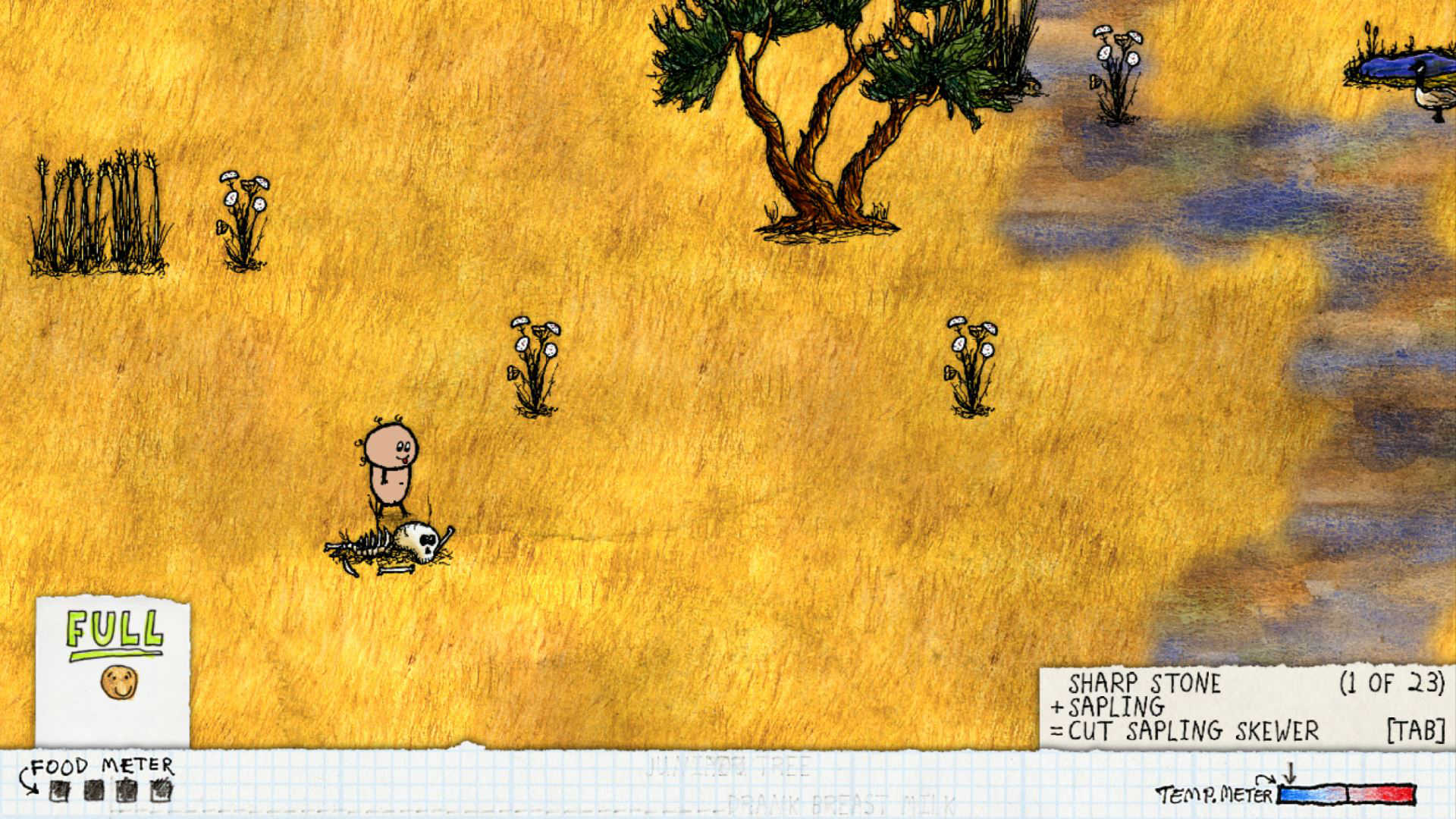
For the first three minutes of One Hour One Life, your survival is entirely dependent on the help of a random stranger, online. A scary thought. You’re a baby, and they’re your mom—your only source of food. They pick you up to feed you, and in the process their own hunger builds. You’re a burden, in other words, and they’re trying to juggle keeping you alive with digging up carrots, picking berries, and fending off wolves.
But it’s not just goodwill that motivates them. As creator Jason Rohrer, of The Castle Doctrine, explains to me in our 90-minute playthrough, One Hour One Life is set up to be "inherently collaborative". As the name suggests, you live for at most 60 minutes, which takes you up to 60 years old. In that time you can’t achieve very much. You might be able to start a modest camp and a small farm, but the only way your creation will live on is through your children, who spawn throughout your lifetime. "If I let my babies die, my camp or whatever I accomplish won’t go any further than that. It will stop at farming carrots, and not ever get to smelting steel," Rohrer explains.
The aim is to create a whole civilization from scratch. Settlements will form as families develop, with the older generation hoping that they’ve left their children with enough resources, and enough wisdom, to survive. Gratification comes from advancing your little part of this massive world (4 billion tiles by 4 billion tiles) as far as you can, and then starting over in a new spot.
You’re born to a new mother each time you respawn. You have a 50/50 chance of spawning male or female, the sole difference being that only women give birth. As a baby you can type a single character in the chat bar, which makes you cry. As you age, you can type longer messages. "Type z for food", my first mom tells me after I spawn in, and it works well for a few minutes as she periodically picks me up, sets me down and carries on her busywork. But then she’s back in chat. "Sorry", she says, before turning into a pile of bones.
If we watch them build a fire, we’ll see that and know how to build a fire. I’m interested in how that knowledge spreads inside a game socially.
Jason Rohrer
Now I’m a lonely orphan. I’ve just turned three years old, which means I can pick berries from a bush and eat them. But my now-deceased mom has already picked all the nearby bushes dry. I run around looking for another woman to feed me, wailing. But I have no luck, and die before my fourth birthday, my bloodline finished.
One Hour One Life is hard. The longest I live is 23 minutes. Hunger is the big killer, with food sources relatively hard to come by. Getting berries is as simple as clicking on a bush, but you can only hold one item at a time. So you have to grab the fruit, click yourself to eat it, and then click back on the bush again to grab another. It all takes time, and the berries run out quick. Because of those limited resources, you’re always on the edge of disaster. "You never get fat, dumb, and happy," says Rohrer. "You can’t farm infinitely and never worry about food, because the water runs out or the soil deposits get used up and then you need to move on to the next level of technology to keep staving off the inevitable crash of civilization. How long can we collectively go before this collapses?"
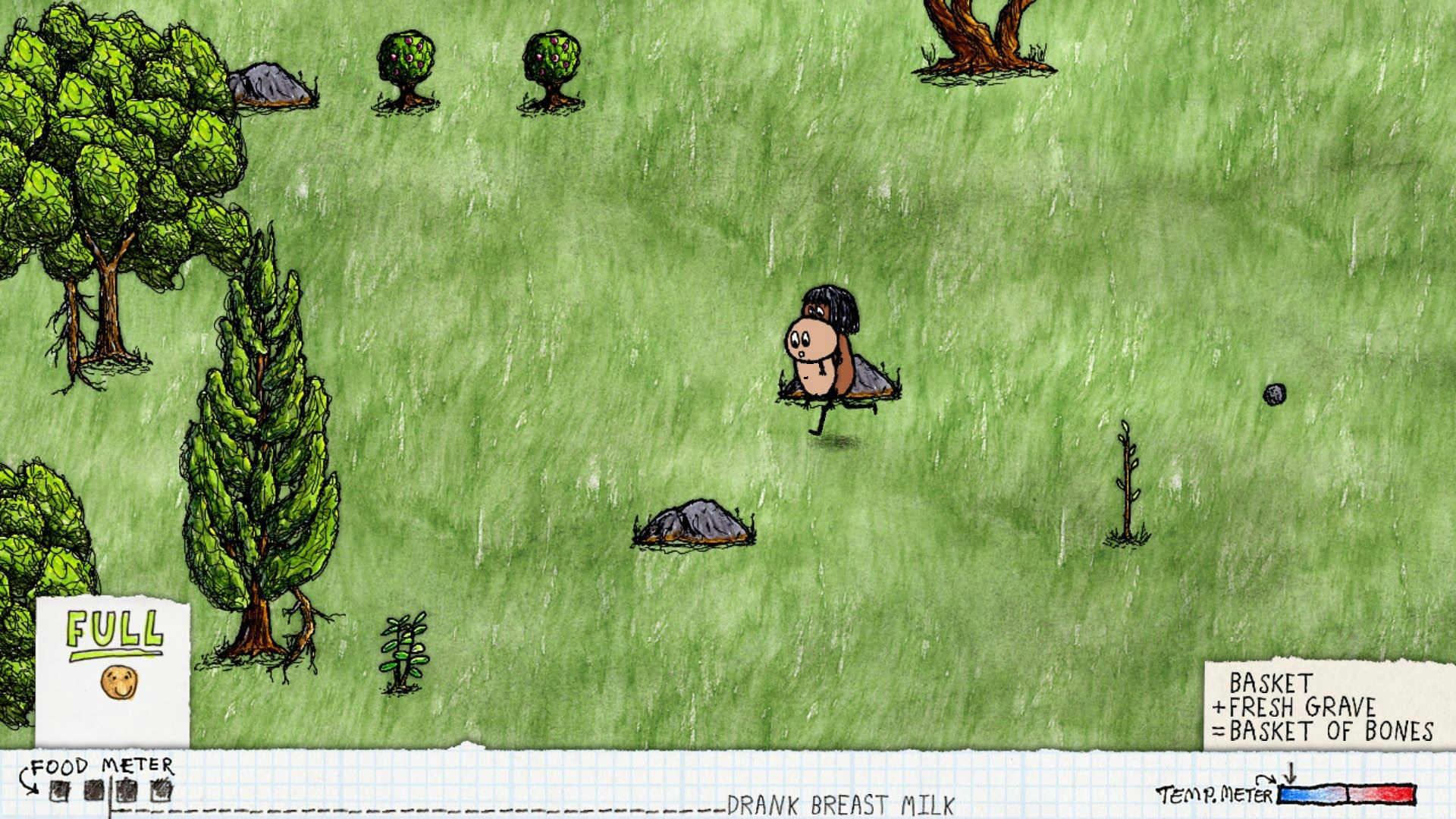
To get food other than berries you’ll have to use the crafting system. You click on an item to pick it up and then click on another object to attempt to combine the two. To dig up carrots, for example, you bash a round stone against a large rock (there’s no real animations for that) to get a sharp stone, and then click on a carrot plant when holding that rock. Rohrer harvests some reeds and weaves them together in a basket, which I pack with berries for later.
Keep up to date with the most important stories and the best deals, as picked by the PC Gamer team.
There’s no system for chronicling recipes in-game, and no way for a new player to know what to do next, save for a note that pops up in the corner of your screen when you’re holding an item that shows you the next baby step up the tech tree (sharp stone + sapling = cut sapling skewer, for example). "Literally everything is a step-by-step crafting recipe, it’s just a tool used on something else. It’s never ‘you need 300 stone plus some amount of wood,’" he says. "It doesn’t hold your hand. If you want to know how smelt steel, or how to make a fire, there’s no way inside the game to see that recipe."
Rohrer hopes that crafting recipes will be passed down through generations, with children learning from their parents. "They’re managing a farm, and they’re not necessarily explaining stuff to us, but we can see what they’re doing. If we watch them build a fire, we’ll see that and know how to build a fire. I’m interested in how that knowledge spreads inside a game socially."
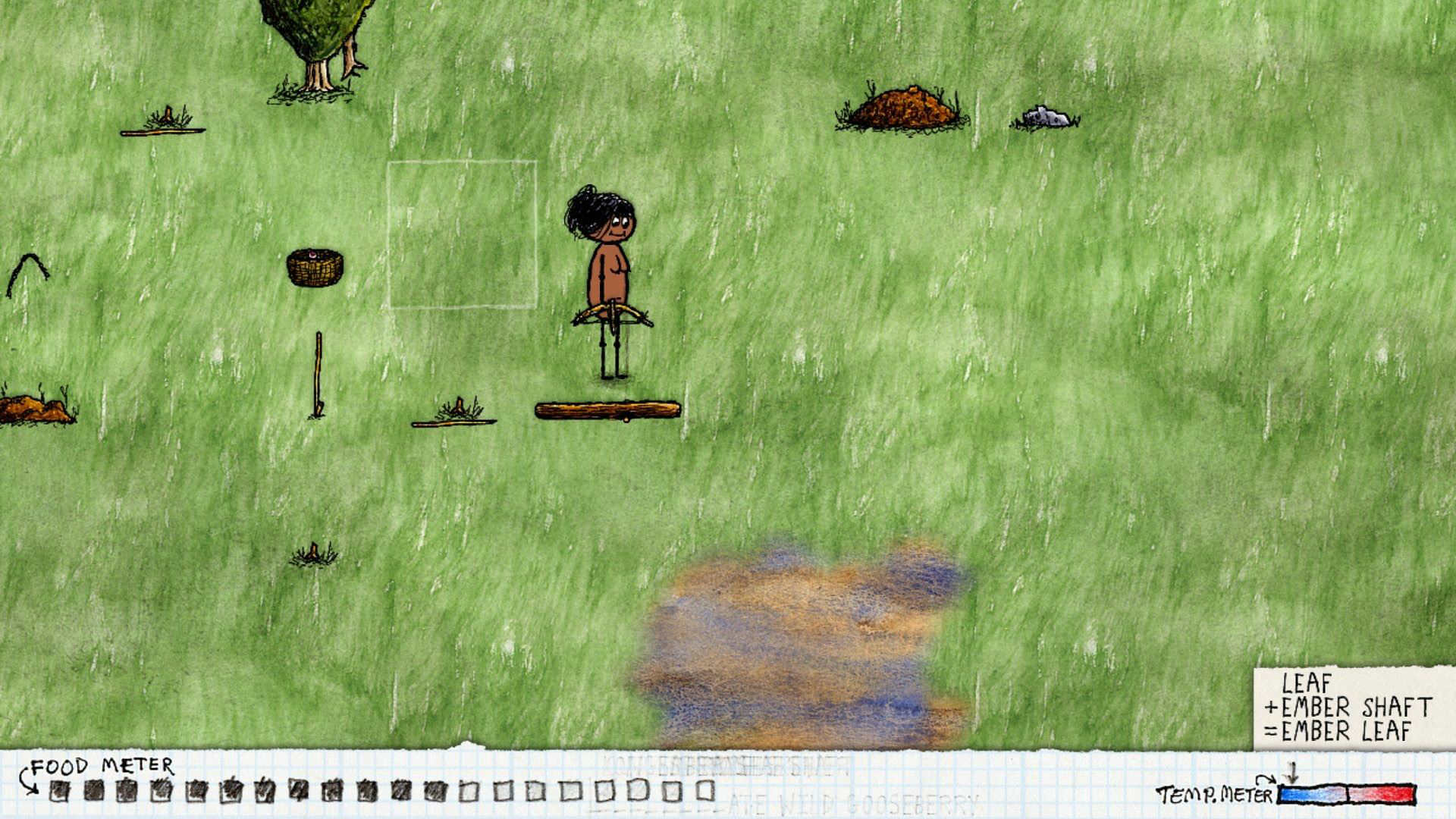
I presume that, eventually, the community will fill up the game’s now-blank Wiki, but Rohrer aims to stay one step ahead by releasing 100 new items a week, all hand-drawn on pen and paper and then digitally transplanted into the game. Currently there are 300 objects, and the tech tree goes as high as smelting steel and building carts to transport goods. He’s aiming for a whopping 10,000 objects over a number of years, including vehicles with combustion engines and potentially a "nuclear button" to reset the server.
You’re making fire with a bow drill and you see somebody else driving by in a car—you might flag them down and say 'how did you make that car?'
Jason Rohrer
The furthest that any of the play-testers have got is a two-screen camp with a kiln, an oven, a forge, lots of clothing (to keep warm), and carts to move around goods. It lasted four generations before it became a forgotten graveyard, although other players could potentially stumble across it. The furthest I get is fire.
I say fire, but they’re more smoldering embers. It still feels like an achievement. I’ve had to harvest thread from milkweed plants, tie them together into a rope, combine that rope with a curved branch to form a bow drill, and then put a makeshift, sharpened shaft into the bow drill and use it on another branch to start an ember. The next step is to fetch a leaf and use it to carry that ember, but that’s as far as I get before I check out, leaving Rohrer to chop kindling, fan the flames and care for the child that we’ve been co-parenting for the last five minutes.
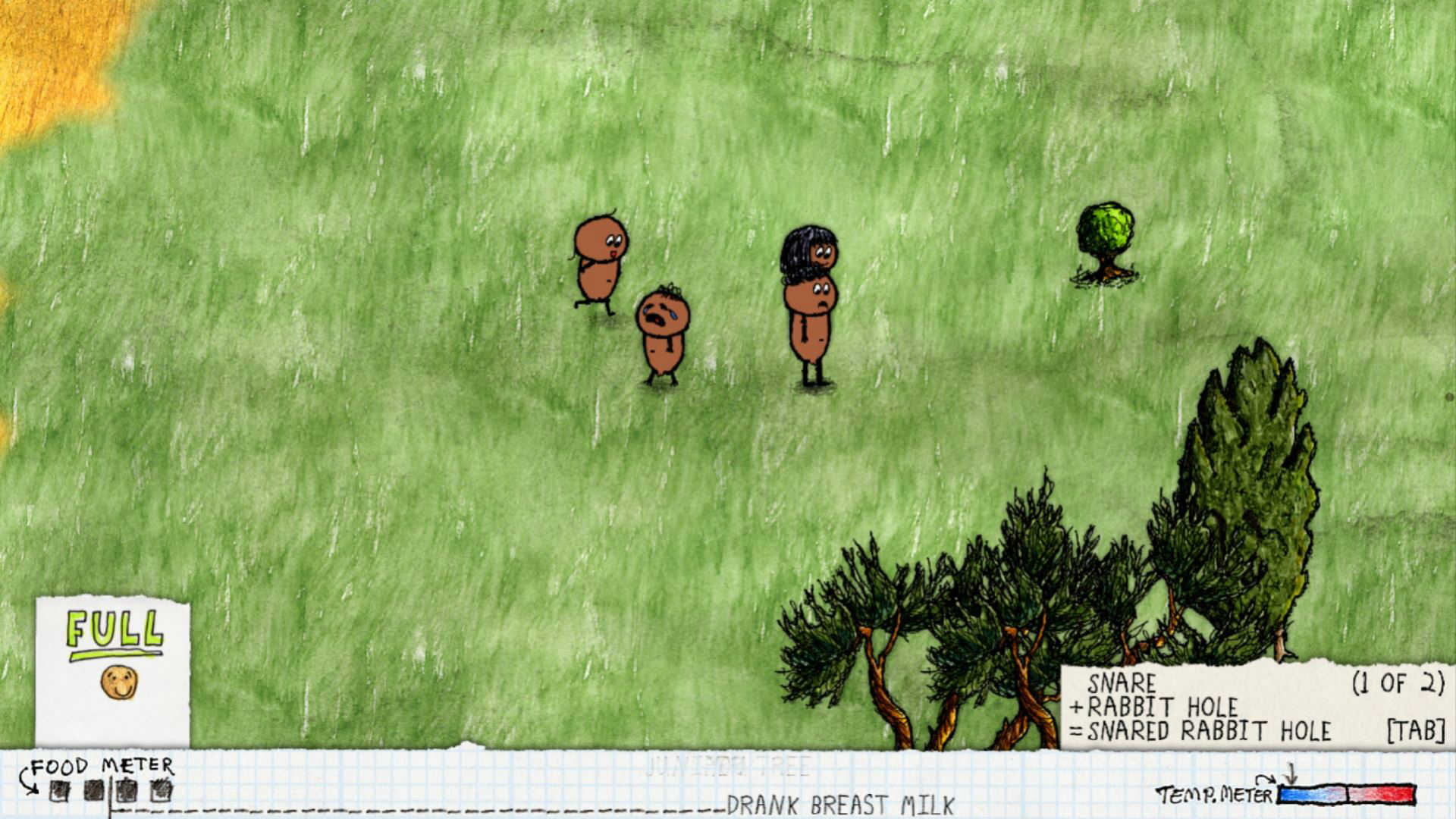
Rohrer hopes that when the servers fill up (each one can support 250 players), tribes and villages will form, which means that babies are more likely to spawn into civilization. Some of those tribes will flourish, some will die out. And more advanced societies will co-exist with primitive groups. "You’re making fire with a bow drill and you see somebody else driving by in a car—you might flag them down and say ‘how did you make that car?’, and they’d say ‘I don’t know, my grandfather gave it to me.’
"You can get born into wealth, or you can get born to a mother out on an errand that has to leave you behind because she has too valuable a cart full of stuff that she has to take back with her. Or some stranger could come along and take care of you. So it’s not the same situation you had in your previous life—that fire you were working on is now lost to you."
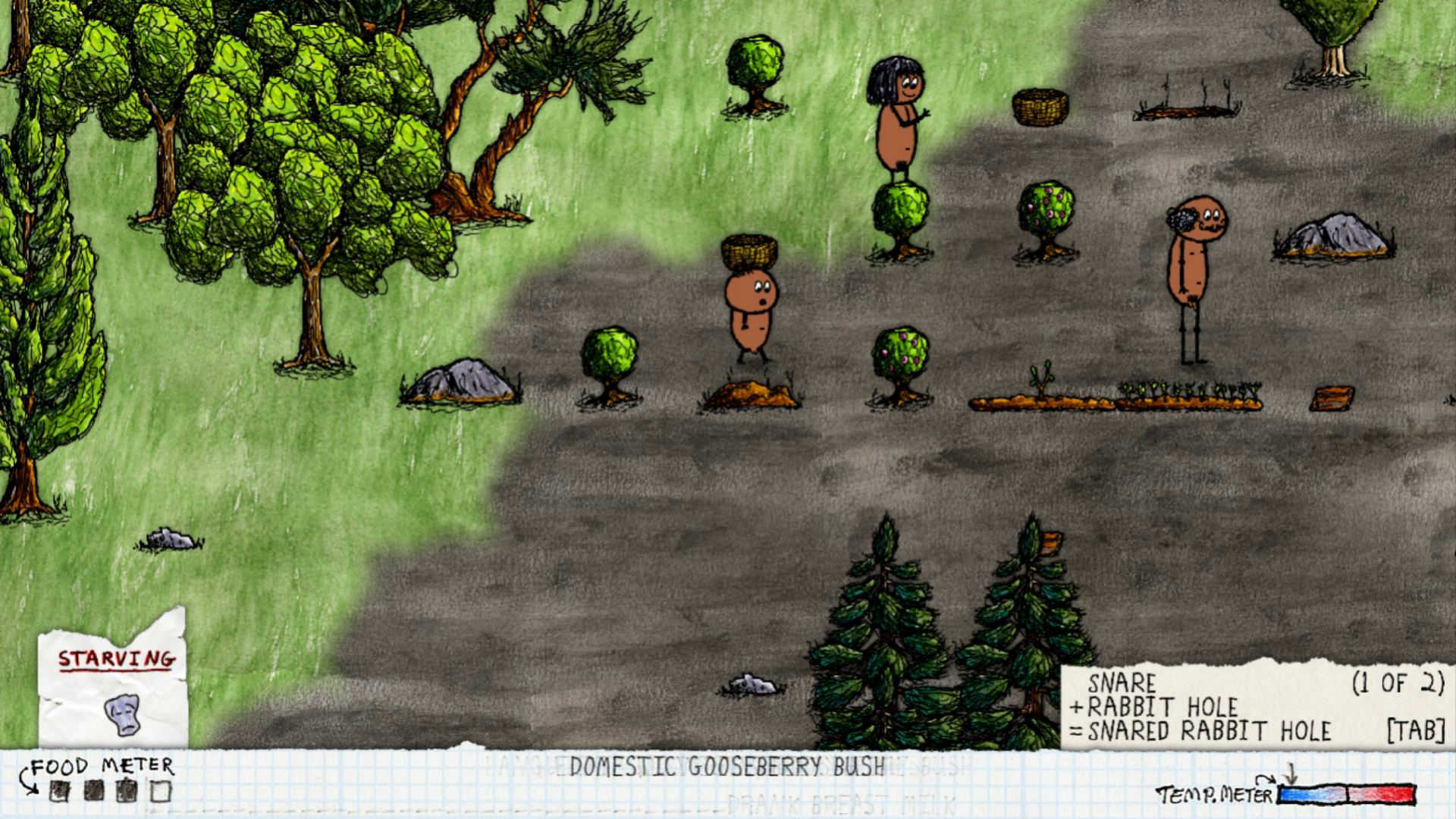
Eventually, you might get cities with buildings, roads, shops trading goods, and rules. He says that giving death a kind of permanence, and ensuring that players all spawn powerless, should discourage trolls and ensure order. "If you troll and somebody dispatches you then there’s a whole process you have to go through to get back to being a little troll again," he says.
"There’s a real consequence when you die, you lose your entire life and everything you’ve invested up to that point. So maybe if someone says ‘stop or I’ll shoot’, or ‘don’t come into our camp’, you’d listen to them. I’m hoping that will engender a society to emerge."
Or maybe not. Maybe it’ll all go kaput, and four generations is as far as anybody will get. That’s what I find so intriguing about One Hour One Life: nobody knows how it’s going to turn out.
One Hour One Life is going into paid alpha soon, and will be available from onehouronelife.com.
Samuel Horti is a long-time freelance writer for PC Gamer based in the UK, who loves RPGs and making long lists of games he'll never have time to play.


